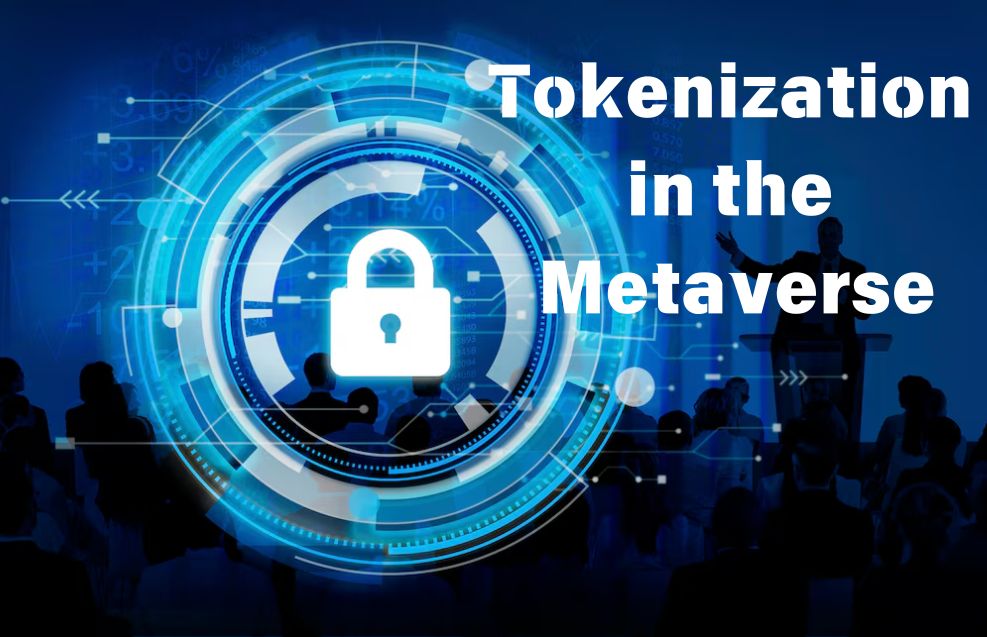The Metaverse is rapidly evolving into a digital ecosystem where users interact, trade, and build immersive experiences. As virtual spaces become more complex, securing digital identities has emerged as a critical concern. Tokenization offers a robust solution by ensuring authenticity, privacy, and security in the Metaverse.
Understanding Tokenization in the Metaverse
Tokenization is the process of converting sensitive data into unique tokens that can be securely stored and transmitted without exposing the original data. In the Metaverse, tokenization can represent digital identities, assets, and transactions, providing a secure framework for user interactions.
By leveraging blockchain technology, tokenized identities ensure that users maintain control over their personal information while enabling trustless verification. These identities can take the form of Non-Fungible Tokens (NFTs), Decentralized Identifiers (DIDs), or Soulbound Tokens (SBTs), each playing a role in securing virtual identities.
The Role of Blockchain in Tokenization
Blockchain plays a vital role in ensuring the security and integrity of tokenized identities. Since blockchain operates on a decentralized ledger system, it eliminates the risks associated with centralized data storage. This decentralization makes it difficult for hackers to manipulate or forge digital identities.
Moreover, smart contracts, which are self-executing contracts with predefined rules, can govern the authentication and verification of tokenized identities. These contracts ensure that only authorized entities can access specific data, further enhancing security.
Benefits of Tokenization for Digital Identities
1. Enhanced Security
Tokenized identities reduce the risk of identity theft by encrypting personal data and decentralizing its storage. Since blockchain transactions are immutable, they cannot be altered or tampered with, ensuring the integrity of digital identities.
2. User Ownership and Control
Tokenization empowers users by giving them complete control over their personal information. Unlike traditional identity management systems that rely on centralized authorities, blockchain-based identities enable users to decide what information they share and with whom.
3. Interoperability
A tokenized identity can be used across multiple Metaverse platforms, eliminating the need for repetitive sign-ups and verification processes. This seamless interoperability enhances the user experience and promotes a more interconnected virtual world.
4. Immutable Identity Verification
Since blockchain records are immutable, digital identities remain tamper-proof. This ensures that users cannot fraudulently alter their credentials, preventing identity-related fraud and impersonation.
5. Privacy Protection
Tokenized identities can utilize advanced encryption techniques such as zero-knowledge proofs, which allow users to verify their credentials without revealing unnecessary personal information. This method enhances privacy while ensuring compliance with identity verification requirements.
Applications of Tokenized Identities in the Metaverse
1. Secure Logins and Authentication
Traditional login methods, such as usernames and passwords, are vulnerable to phishing attacks and data breaches. Tokenized identities enable users to authenticate themselves through blockchain-based wallets, reducing dependency on centralized databases and improving security.
2. Personalized Avatars and Reputation Systems
Users can maintain unique avatars and digital reputations tied to their tokenized identities. This ensures credibility and prevents impersonation. Reputation systems built on blockchain can track users’ activities and behaviors, allowing Metaverse platforms to create trust-based ecosystems.
3. Decentralized Finance (DeFi) and Commerce
In the Metaverse, users can engage in financial transactions using tokenized identities. These identities streamline access to lending, trading, and smart contract interactions, eliminating the need for intermediaries and reducing transaction costs.
4. Access Control and Governance
Organizations and platforms within the Metaverse can implement token-based access control for exclusive virtual spaces, events, and governance participation. Tokenized identities can grant or restrict access to specific Metaverse locations based on predefined conditions.
5. Gaming and Virtual Asset Ownership
Tokenized identities are crucial in gaming and virtual asset ownership. Players can own in-game assets, achievements, and character attributes as NFTs, ensuring true ownership and transferability between different gaming platforms.
6. Healthcare and Education in the Metaverse
Tokenization also has applications in healthcare and education within the Metaverse. Medical records, academic credentials, and certifications can be stored securely on the blockchain, allowing seamless verification and reducing fraudulent claims.
Challenges and Future Outlook
Despite its potential, tokenizing digital identities in the Metaverse comes with challenges:
1. Regulatory Compliance
Governments and institutions are still developing frameworks for digital identity management. Regulations vary across jurisdictions, creating challenges in achieving global standardization for tokenized identities.
2. Scalability and Adoption
Large-scale implementation requires widespread adoption and technological advancements. Blockchain networks need to scale efficiently to handle the growing number of transactions and identity verifications.
3. Security Risks
While blockchain enhances security, vulnerabilities in smart contracts and private key management can pose risks. Users must ensure proper key management practices to avoid losing access to their tokenized identities.
4. User Education and Awareness
For tokenized identities to gain mass adoption, users must understand how to manage their digital assets securely. Education initiatives are crucial in helping users navigate decentralized identity solutions effectively.
5. Interoperability Challenges
Although tokenized identities enable cross-platform usage, ensuring compatibility between different Metaverse ecosystems remains a challenge. Standardization efforts are needed to enhance interoperability between various blockchain networks.
The Future of Tokenization in the Metaverse
The future of tokenization in the Metaverse will depend on collaboration between technology developers, regulators, and users. As innovations like decentralized identity solutions and cross-chain interoperability continue to emerge, tokenization will play a crucial role in shaping a secure and user-centric digital world.
1. Advancements in Zero-Knowledge Proofs
The integration of zero-knowledge proofs will enable users to verify their credentials without revealing sensitive details. This technology will further enhance privacy and security in the Metaverse.
2. Integration with Artificial Intelligence (AI)
AI-powered identity management systems can enhance the efficiency of tokenized identities. AI can analyze behavioral patterns to detect fraudulent activities and improve security measures.
3. Growth of Decentralized Autonomous Organizations (DAOs)
DAOs are increasingly using tokenized identities for governance and voting. As DAOs become more prevalent in the Metaverse, tokenized identities will play a crucial role in ensuring fair and transparent decision-making processes.
4. Adoption of Cross-Chain Identity Solutions
Cross-chain identity solutions will allow users to seamlessly interact across different blockchain networks. Projects focused on interoperability will drive the adoption of tokenized identities in the Metaverse.
Conclusion
Tokenization is transforming how digital identities are secured in the Metaverse, providing enhanced security, privacy, and user control. By leveraging blockchain and decentralized technologies, tokenized identities pave the way for a safer and more seamless virtual experience.
As the Metaverse expands, ensuring that identity protection evolves alongside it will be crucial for fostering trust and innovation in the digital realm. With continued advancements and collaborative efforts, tokenization will become the backbone of identity security in the virtual world, enabling a more decentralized and user-centric future.
Read Also : How Data Tokenization Helps Businesses Stay PCI DSS Compliant

